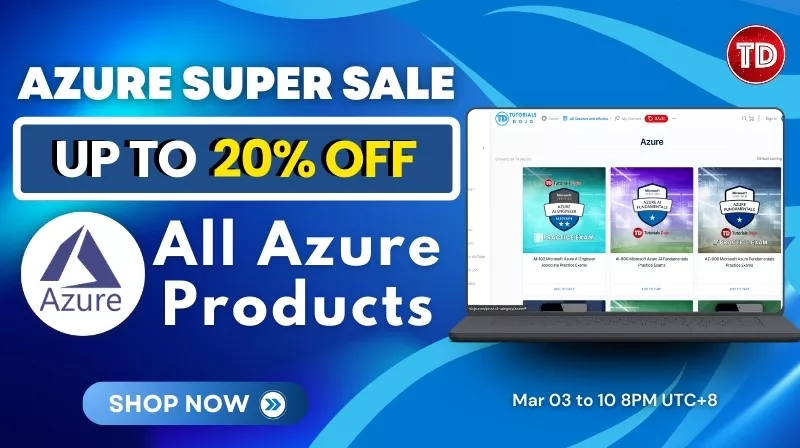Last updated on December 28, 2025
AWS KMS Cheat Sheet
- A managed service that enables you to easily encrypt your data. KMS provides a highly available key storage, management, and auditing solution for you to encrypt data within your own applications and control the encryption of stored data across AWS services.
Features
- AWS KMS is integrated with CloudTrail, which provides you the ability to audit who used which keys, on which resources, and when.
- AWS KMS keys are used to control access to data encryption keys that encrypt and decrypt your data.
- You can choose to have KMS automatically rotate KMS keys created within KMS once per year without the need to re-encrypt data that has already been encrypted with your KMS key.
- To help ensure that your keys and your data is highly available, KMS stores multiple copies of encrypted versions of your keys in systems that are designed for 99.999999999% durability.
- You can connect directly to AWS KMS through a private endpoint in your VPC instead of connecting over the Internet. When you use a VPC endpoint, communication between your VPC and AWS KMS is conducted entirely within the AWS network.
- You can define VPC Endpoint policies, enabling you to increase the granularity of your security controls by specifying which principals can access your endpoint, which API calls they can make, and which resources they can access.
- Supports multi-Region KMS keys for replicating keys across AWS Regions, including China Regions.
- Allows custom rotation periods for automatic key rotation and visibility into previous key material.
- Supports new key types and specifications, including ECC_NIST_EDWARDS25519, HMAC keys, and post-quantum cryptography options.
- Provides asymmetric KMS keys and asymmetric data keys for signing, verification, encryption, and decryption.
- Supports key derivation for ECC and SM2 keys with
KEY_AGREEMENTusage. - Enables attribute-based access control (ABAC) using tags and aliases for fine-grained key access.
- Allows on-demand rotation for symmetric and multi-Region keys with imported key material.
- Supports external key stores to manage cryptographic keys outside of AWS.
- Dry-run API operations for testing permissions without performing actions.
- Hybrid post-quantum key exchange algorithms for secure TLS communication with KMS.
- Improved dual-stack endpoint support and enhanced VPC endpoint policy controls.
Concepts
- AWS KMS keys – You can use a KMS key to encrypt and decrypt up to 4 KB of data. Typically, you use KMS keys to generate, encrypt, and decrypt the data keys that you use outside of KMS to encrypt your data. Symmetric KMS keys are 256-bit advanced encryption standard (AES) keys that cannot be exported.
- There are three types of KMS keys:
|
Type of KMS key |
Can view |
Can manage |
Used only for my AWS account |
|
Customer managed keys |
Yes |
Yes |
Yes |
|
AWS managed keys |
Yes |
No |
Yes |
|
AWS owned keys |
No |
No |
No |
-
- Customer managed keys are KMS keys that you create, own, and manage. You have full control over these KMS keys, including establishing and maintaining their key policies, IAM policies, and grants, enabling and disabling them, rotating their cryptographic material, adding tags, creating aliases that refer to the KMS keys, and scheduling the KMS keys for deletion.
- AWS managed keys are KMS keys in your account that are created, managed, and used on your behalf by an AWS service that integrates with KMS. You can view the AWS managed keys in your account, view their key policies, and audit their use in CloudTrail logs. However, you cannot manage these AWS managed keys or change their permissions. And, you cannot use AWS managed keys in cryptographic operations directly; the service that creates them uses them on your behalf.
- AWS owned keys are not in your AWS account. They are part of a collection of KMS keys that AWS owns and manages for use in multiple AWS accounts. AWS services can use AWS owned key to protect your data. You cannot view, manage, or use AWS owned keys, or audit their use.
- Data keys – Encryption keys that you can use to encrypt data, including large amounts of data and other data encryption keys.
- AWS KMS can generate, encrypt, and decrypt data keys. However, KMS does not store, manage, or track your data keys, or perform cryptographic operations with data keys.
- Data keys can be generated at 128-bit or 256-bit lengths and encrypted under a KMS key you define.
- Envelope encryption -The practice of encrypting plaintext data with a data key, and then encrypting the data key under another key. The top-level plaintext key encryption key is known as the root key.
- Encryption Context – All KMS cryptographic operations accept an encryption context, an optional set of key–value pairs that can contain additional contextual information about the data.
- Key Policies – When you create a KMS key, permissions that determine who can use and manage that KMS key are contained in a document called the key policy.
- Grants – A grant is an alternative to the key policy. Grants are commonly used for temporary rights since they can be created, utilized, and deleted without affecting your key policies or IAM policies.
- Grant Tokens – When you create a grant, the permissions specified in the grant might not take effect immediately due to eventual consistency. If you need to mitigate the potential delay, use a grant token instead.
- When you enable automatic key rotation for a customer managed KMS key, AWS KMS generates new cryptographic material for the KMS key every year. KMS also saves the KMS Keys’ older cryptographic material so it can be used to decrypt data that it encrypted.
- An alias is an optional display name for an AWS KMS Keys. Each KMS Key can have multiple aliases, but each alias points to only one KMS Key. The alias name must be unique in the AWS account and region.
Importing Keys
- A KMS Key contains the key material used to encrypt and decrypt data. When you create a KMS key, by default AWS KMS generates the key material for that KMS key. But you can create a KMS key without key material and then import your own key material into that KMS key.
- When you import key material, you can specify an expiration date. When the key material expires, KMS deletes the key material and the KMS key becomes unusable. You can also delete key material on demand.
Deleting Keys
- Deleting a KMS key deletes the key material and all metadata associated with the KMS key and is irreversible. You can no longer decrypt the data that was encrypted under that KMS key, which means that data becomes unrecoverable.
- You can create a CloudWatch alarm that sends you a notification when a user attempts to use the KMS key while it is pending deletion.
- You can temporarily disable keys so they cannot be used by anyone.
- KMS supports custom key stores backed by AWS CloudHSM clusters. A key store is a secure location for storing cryptographic keys.
- You can connect directly to AWS KMS through a private endpoint in your VPC instead of connecting over the internet. When you use a VPC endpoint, communication between your VPC and AWS KMS is conducted entirely within the AWS network.
Use Cases
- S3 Bucket Encryption: Enable SSE-KMS on buckets to audit access in CloudTrail.
- EBS Volume Encryption: Encrypt boot and data volumes for EC2.
- Secrets Manager: Encrypt stored secrets (DB passwords, API keys).
- Digital Signing: Use Asymmetric KMS keys to sign code or documents.
Pricing
1. Key Storage Cost
- Customer Managed Keys: $1.00 per key / month.
- AWS Managed Keys: Free.
- Imported Key Material: $1.00 per key / month.
2. Key Rotation Cost (New Model)
- First & Second Rotation: charged prorated $1/month.
- Subsequent Rotations: Free. (Price increase is capped at the second rotation).
3. Request Costs
Free Tier: 20,000 requests / month.
Standard: ~$0.03 per 10,000 requests (varies by region).
RSA 2048 Asymmetric: ~$0.03 per 10,000 requests.
ECC Asymmetric: ~$0.10 per 10,000 requests.
Note: If you are studying for the AWS Certified Security Specialty exam, we highly recommend that you take our AWS Certified Security – Specialty Practice Exams and read our Security Specialty exam study guide.
Validate Your Knowledge
Question 1
A company plans to use AWS Key Management Service (KMS) to encrypt confidential documents owned by different organizations. The Security team must have full control over how the KMS keys are used, however, they don’t want the operational overhead of rotating keys annually.
Which AWS KMS key type should the team use to satisfy this requirement?
- AWS managed key
- Symmetric customer managed key
- Customer managed key in a custom key store associated with an AWS CloudHSM cluster in your account
- AWS owned key
Question 2
A company has an application that heavily uses AWS KMS to encrypt financial data. A Security Engineer has been instructed to ensure that communications between the company’s VPC and AWS KMS do not pass through the public Internet.
Which combination of steps is the MOST suitable solution in this scenario? (Select TWO.)
- Modify the AWS KMS key policy to include the
aws:sourceVpcecondition and reference the VPC endpoint ID. - Replace the Internet Gateway of the VPC with an AWS Transit Gateway.
- Set up a new VPC endpoint for AWS KMS with private DNS enabled.
- Establish a Direct Connect connection between the VPC and AWS KMS.
- In the AWS KMS key policy, add a new
aws:sourceVpccondition and reference the VPC endpoint ID.
For more AWS practice exam questions with detailed explanations, visit the Tutorials Dojo Portal:
References:
https://docs.aws.amazon.com/kms/latest/developerguide
https://aws.amazon.com/kms/features/
https://aws.amazon.com/kms/pricing/
https://aws.amazon.com/kms/faqs/



 Key rotation in AWS KMS is a cryptographic best practice that is designed to be transparent and easy to use. AWS KMS supports optional automatic key rotation only for customer-managed keys.
Key rotation in AWS KMS is a cryptographic best practice that is designed to be transparent and easy to use. AWS KMS supports optional automatic key rotation only for customer-managed keys.

















